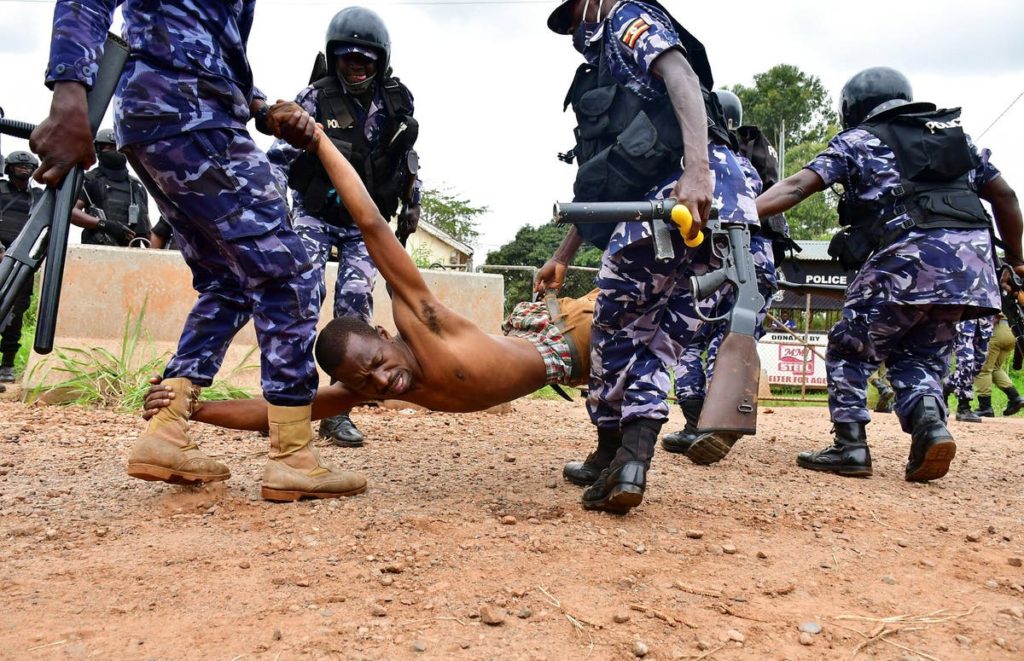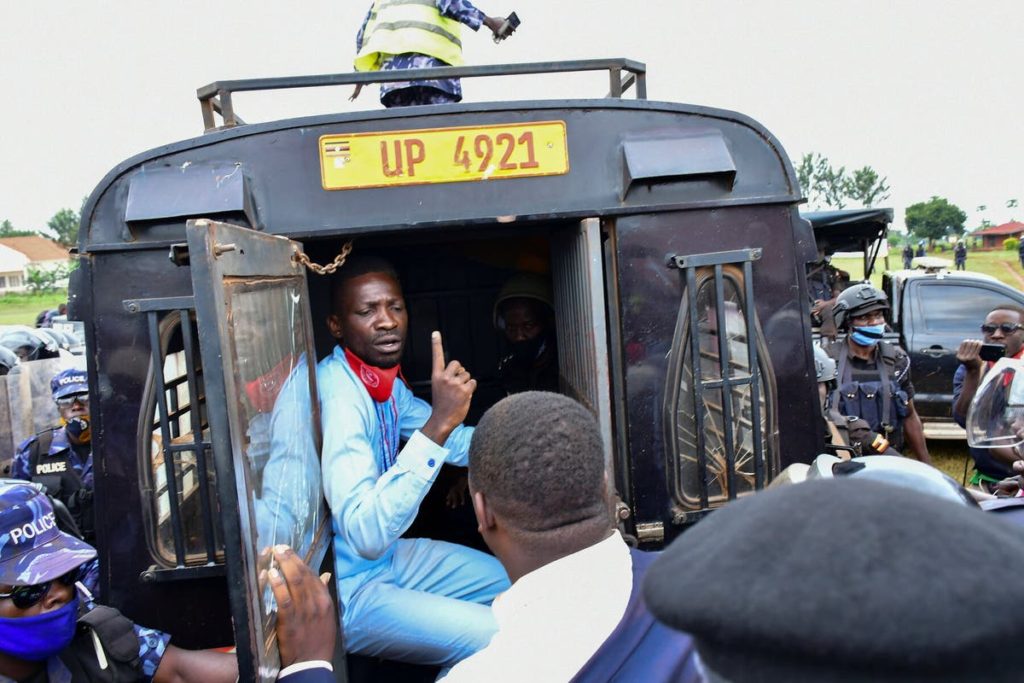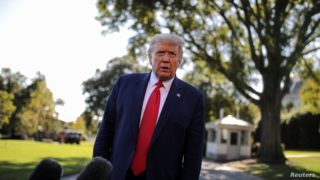At least 16 people were killed in protests over the arrests. One of the detained presidential candidates, the popular musician-turned-lawmaker Bobi Wine, was accused of breaking coronavirus restrictions at campaign rallies.
NAIROBI, Kenya — The national police in Uganda said Thursday that at least 16 people had been killed and hundreds arrested in protests that erupted across the country after two presidential candidates were arrested while campaigning ahead of a highly anticipated January election.
The violence began Wednesday as word of the arrests spread in the East African nation, where President Yoweri Museveni is vying for a record sixth term in office.
A deputy police spokesman, Patrick Onyango, said in a statement broadcast on a Ugandan news station on Thursday that the death toll stood at 16, more than double the figure late Wednesday, and that rioting was continuing around the capital Kampala and elsewhere in the country. At least 300 people were arrested, the police said.
The unrest in Uganda echoes recent election-related violence in other African countries, including Guinea, Tanzania and Ivory Coast, where opposition figures accused entrenched leaders of having manipulated the rules and rigged the polls in order to extend their stay in power.
In Uganda, the arrest of Bobi Wine, one of the presidential candidates and a popular musician-turned-lawmaker, was based on accusations that his rallies had breached coronavirus rules. “The majority of the participants had no safeguards of face masks, physical distancing and proper hygiene,” a police statement said.
Another presidential contender, Patrick Amuriat, was arrested in the northwestern town of Gulu, accused of planning to hold an unauthorized assembly. He was later released.
It was the second time this month that the police had detained these same two candidates. The authorities had also previously arrested Mr. Wine, whose real name is Robert Kyagulanyi, on several occasions, severely beat him in custody and even killed his driver. They had also raided his party offices and confiscated election materials.
The arrests on Wednesday fueled protests in major cities like Jinja and Masaka, and in the capital, Kampala, and its suburbs. Video and social media posts showed demonstrators burning tires, and there were reports of looting and vandalism as officers used tear gas to disperse the crowds.
The police said they had arrested several people in connection with the violence. A leading television station, NTV Uganda, said officers had confiscated equipment as one of its reporters covered the protests.
The demonstrations come barely two months before a general election in which Mr. Museveni will face off with 10 other candidates. Mr. Museveni, 76, is one of Africa’s longest-serving rulers and has presided over the East African nation since 1986, after the ouster of the dictator Idi Amin.
Although Mr. Museveni is credited with bringing peace, promoting economic growth and reducing rates of AIDS, his government has faced criticism over growing corruption, widespread surveillance tactics and intolerance of dissent. In 2017, he approved a measure that scrapped the presidential age limit of 75, allowing him to run for another term.

Mr. Wine, whose real name is Robert Kyagulanyi, in a police detention van on Wednesday. Abubaker Lubowa/Reuters
Mr. Wine, 38, is running on a platform of change and a promise to oversee a “people-centered” government that would ensure equal access to education, health care and economic development.
His rise exemplifies a standoff in recent years between aging despots and young voters in Africa, a trend also playing out in countries like Algeria, Cameroon, Sudan and Zimbabwe.
Mr. Wine has repeatedly said that he could be killed over his political efforts.
On Tuesday, in a video posted to his Facebook page, dozens of security officers could be seen surrounding his vehicle in Luuka before taking him to a detention van. In other footage posted by his political party, the National Unity Platform, Mr. Wine, with a red face mask dangling from his chin, urged officers to “be nonviolent.”
He was then transported to a police station, where the authorities said he was “interrogated on charges of negligent conduct likely to spread an infectious disease, obstruction, incitement to violence and holding unauthorized assemblies.”
The National Unity Platform tweeted out a charge sheet that said Mr. Wine was being detained for holding a rally of more than 200 people. Joel Ssenyonyi, a party spokesman, also said that Mr. Wine had been denied access to his lawyers, doctors, family and fellow party members.
“We are worried they could have tortured him and they don’t want the world to see the state in which he is,” Mr. Ssenyonyi said in an interview.
The authorities in Uganda have introduced strict measures to thwart the coronavirus, and rights organizations have accused them of using “excessive force” to ensure compliance. The country has reported 16,905 infections and 157 deaths from the virus.
Mr. Wine’s arrest drew condemnation from activists and opposition parties both in Uganda and across the continent who called for his release. Mugisha Muntu, the presidential candidate for the Alliance for National Transformation, said he would suspend his campaign until both detained candidates were released from police custody.
Several foreign diplomatic missions in Uganda, along with European Union officials, also voiced concerns about Wednesday’s violence. The United States Embassy said in a statement, “We urge all parties to renounce violence, undertake good-faith measures to reduce tensions and respect fundamental freedoms.”
FEATURED IMAGE: A supporter of the presidential candidate Bobi Wine was among those detained in the district of Luuka, Uganda, on Wednesday. Protesters were demonstrating against the candidate’s arrest. Abubaker Lubowa/Reuters
By Abdi Latif Dahir/The New York Times







Zycie zaczyna sie po opuszczeniu wygodnego kokonu. – Neale Donald Walsh